Countries
IPPOG
IPPOG Forum Members
Bulgaria
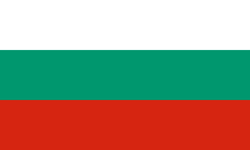
Intro
Sofia Tech Park develops activities to support start-ups, small and medium enterprises, science, education and innovation. There are few main components included in the park:
Incubator – The incubator community includes start-ups and developed companies, investment funds and educational organizations.
Forum – A venue for events in the field of science, education, innovation, technology and entrepreneurship.
Experimentarium – A permanent interactive composition “TechnoMagicLand” for children with interests in the field of natural sciences.
Laboratory complex (R&D&I consortium) – Our 11 laboratories offer an opportunity for development of research and business projects in various research areas.
Details
JOINED: 2016
CURRENT STATUS: MEMBER
София Тех Парк развива дейности в подкрепа на стартиращи предприятия, малки и средни предприятия, наука, образование и иновации. Има няколко основни компонента, включени в парка:
Инкубатор – Общността на инкубатора включва стартиращи и развити компании, инвестиционни фондове и образователни организации.
Форум – Място за събития в областта на науката, образованието, иновациите, технологиите и предприемачеството.
Експериментариум - Постоянна интерактивна композиция “ТехноМеджиkЛенд” за деца с интереси в областта на природните науки.
Лабораторен комплекс (Консорциум за научноизследователска и развойна дейност) – Нашите 11 лаборатории предлагат възможност за развитие на изследователски и бизнес проекти в различни изследователски области.
JOINED: 2016
CURRENT STATUS: MEMBER
Representative
Vassil Karaivanov
IPPOG
IPPOG Forum Members
Brazil
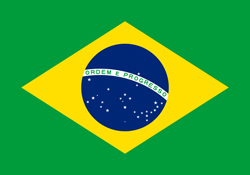
Intro
Brazil is represented in IPPOG by the National Network of High Energy Physics (Rede Nacional de Física de Altas Energias, RENAFAE, in Portuguese), officially created by the Brazilian Ministry of Science and Technology to coordinate the national effort in High Energy Physics. The country has a long tradition in High Energy Physics and its outreach. The event Masterclasses Hands On Particle Physics is applied in the country since 2008 and nowadays more than a 1000 students are reached every year in different institutions spread around the country. By the time Brazil was joining IPPOG, a Working Group was created congregating Particle Physicists and Science Education Experts from different Brazilian institutions around the country to promote particle physics outreach activities and to represent the country in IPPOG. Several initiatives are been developed by this group as the organization of regular meetings to exchange ideas and start new collaborations among the participants. For instance, a project to introduce cosmic ray detectors in elementary schools was born from this group. Given the size and demands of the country, uncountable initiatives and activities can still be created to promote particle physics and scientific knowledge in Brazil.
IPPOG Brazilian website: http://www1.fisica.org.br/ippog/
Details
O Brasil é representado no IPPOG pela Rede Nacional de Física de Altas Energias (RENAFAE), oficialmente criada pelo Ministério da Ciência e Tecnologia do Brasil para coordenar o esforço nacional em Física de Altas Energias. O país tem uma longa tradição em Física de Altas Energias e sua divulgação. O evento Masterclasses Hands On Particle Physics é aplicado no país desde 2008 e hoje mais de 1000 alunos participam do evento a cada ano em diferentes instituições espalhadas pelo país. Quando o Brasil estava ingressando no IPPOG, foi criado um Grupo de Trabalho reunindo Físicos de Partículas e Especialistas em Educação Científica de diferentes instituições brasileiras de todo o país para promover atividades de divulgação da física de partículas e representar o país no IPPOG. Várias iniciativas são desenvolvidas por este grupo como a organização de reuniões regulares para troca de ideias e para iniciar novas colaborações entre os participantes. Por exemplo, um projeto para introduzir detectores de raios cósmicos nas escolas primárias nasceu deste grupo. Dadas as dimensões e as demandas do país, inúmeras iniciativas e atividades ainda podem ser criadas para promover a física de partículas e o conhecimento científico no Brasil.
IPPOG Brazilian website: http://www1.fisica.org.br/ippog/
JOINED: 2016
CURRENT STATUS: MEMBER
Representative
Marcia Begalli
IPPOG
IPPOG Forum Members
GSI
Intro
The GSI Helmholtzzentrum für Schwerionenforschung in Darmstadt operates a worldwide leading accelerator facility for research purposes.
About 1,520 employees are working at GSI. In addition, every year approximately 1,000 researchers from universities and other research institutes around the world come to GSI to use the facility for experiments.
GSI is a limited liability company (GmbH). Shareholders are the German Federal Government with 90 %, the State of Hesse with 8 %, the State of Rhineland-Palatinate and the Free State of Thuringia with 1 % each. They are represented in the GSI supervisory board by the Federal Ministry of Education and Research and the respective state ministries. GSI is a member of the Helmholtz Association, Germany's largest research organization.
Details
Representative
Yiota Foka
IPPOG
IPPOG Forum Members
DESY
Intro
Content to be provided
Details
Representative
Carolin Gnebner
DESY is one of the world’s leading accelerator centres. Researchers use the large-scale facilities at DESY to explore the microcosm in all its variety – from the interactions of tiny elementary particles and the behaviour of new types of nanomaterials to biomolecular processes that are essential to life. The accelerators and detectors that DESY develops and builds are unique research tools.
IPPOG
IPPOG Forum Members
ATLAS Collaboration
Intro
ATLAS is a general-purpose particle-physics experiment at the Large Hadron Collider (LHC) at CERN. It is run by an international collaboration with about 5000 members from 180 institutions in 40 countries worldwide. It has been designed to exploit the full discovery potential and the huge range of physics opportunities that the LHC provides.
ATLAS' scientific exploration uses precision measurement to push the frontiers of knowledge by seeking answers to fundamental questions such as: What are the basic building blocks of matter? What are the fundamental forces of nature? Could there be a greater underlying symmetry to our universe?
ATLAS physicists test the predictions of the Standard Model, which encapsulates our current understanding of what the building blocks of matter are and how they interact. These studies can lead to ground-breaking discoveries, such as that of the Higgs boson, physics beyond the Standard Model and the development of new theories to better describe our universe.
Details
Representative
Muhammad Alhroob
IPPOG
Roumyana Mileva Hadjiiska
Roumyana Mileva Hadjiiska
Intro
Roumyana Hadjiiska joined the CMS collaboration in 2010 on the start of her PhD education at University of Sofia “St. Kliment Ohridski”, Bulgaria. Since than she dedicates the main part of her time to work within the CMS muon system, including muon physics and muon detector performance. During her PhD she joined also an one year project working for the Technical Transfer Office at the same university. After the defend of her PhD she started a work at BAS (Bulgarian Academy of Sciences), joining the High Energy Lab at INRNE (Institute for Nuclear Research and Nuclear Energy), where she is working until now. Currently she is an senior assistant professor at the same laboratory.
During all this time Roumyana put a lot of efforts to populate the Particle Physics results within the society and to make the open data and tools closer to the Bulgarian students and teachers. In 2014 she joined a group of Bulgarian scientists who initiated the program of the CMS virtual visits, helping mainly with the domestic organization of the events. In the end of 2017 with the help of her colleagues from different institutions – BAS-INRNE, University of Sofia, University of Plovdiv, OSOS project, People's Astronomical Observatory in Varna – they built an informal group of scientists who organized the first International Masterclasses in Bulgaria in 2018. After the big interest and success of the event the group decided to move closer to the schools and in next three years they have organized more than 15 classes, covering also the schools in the smaller Bulgarian towns.
In 2021 Bulgaria becomes and official member of IPPOG, thanks to the official participation of the Sofia Tech Park giving a way for further and wider participation in the physics outreach events.
Roumyana believes that even the students from the smallest towns all over the world should have a chance to participate in the contemporary physics discoveries, making the education more interesting and attractive. “Speaking physics” as an international language gives the students an opportunity to feel that they are real part of the world with an own meaningful contribution.
Bulgarian Academy of Sciences – Institute for Nuclear Research and Nuclear Energy (INRNE), Bulgaria
Member of the CMS collaboration, Muon Detector: 2010 till now
Muon DPGO (Detector performance group)
representative: 2020 till now
Contact person between Muon and BRIL groups: 2019 - 2020
RPC (Resistive Plate Chambers) DPG Coordinator: 2015 – 2019
Bulgarian Academy of Sciences, Institute for Nuclear Research and Nuclear Energy (INRNE)
Senior Assistant Professor: 2015 till now
Physicist: 2014 – 2015
University of Sofia “St. Kliment Ohridski”, Bulgaria
Technical Transfer Office: 2013 - 2014
PhD in HEP April, 2014
Doctoral student: 2010 – 2014
National Center of Radiobiology and Radiation Protection
Radiation control: 2008 – 2009
Outreach:
CERN Masterclasses:
CMS Masterclasses in Bulgaria: 2018; 2019; 2020; 2021
- Organizer and mentor
Bulgarian High-School Students Internship Programme 2017
- Mentor
Details
Representative
Roumyana Mileva Hadjiiska
Roumyana Hadjiiska joined the CMS collaboration in 2010 on the start of her PhD education at University of Sofia “St. Kliment Ohridski”, Bulgaria. Since than she dedicates the main part of her time to work within the CMS muon system, including muon physics and muon detector performance. During her PhD she joined also an one year project working for the Technical Transfer Office at the same university.
IPPOG
Members
Germany
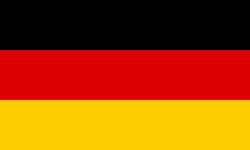
Intro
Germany has a very large community in basic research on particle physics, nuclear physics and astrophysics, with more than 2000 people attending the regular common national conferences. The diversity of the physics program in these fields is also reflected in the scales of the involved experiments and collaborations ranging from table top nuclear decay experiments to large scale accelerator facilities, such as CERN/LHC and GSI/FAIR. The research in Germany rests on three pillars of activity in Universities, Max-Planck-Institutes and the Helmholtz Centres.
It is a key mission to explain the aspects of these fundamental research efforts to the general public and motivate young people with various background to contribute to the answers on the basic question of the origin of matter and the universe, and to advance technology and applications in related areas, such as medicine and the energy sector.
In Germany, a nation wide network (Netzwerk Teilchenwelt) since 2010 connects a growing number of research institutes and facilities to promote particle, astroparticle and nuclear physics.
Within the framework of Netzwerk Teilchenwelt, scientists are bringing particle physics into the classroom. Young researchers, mostly PhD students from the participating universities and research institutes, hold events for high school students, such as Masterclasses with data from various experiments or hands-on detector experiments.
Each year, around 3500 pupils take part in the multi-stage program, including 70 high school students being invited to CERN for workshops or to pursue their own research projects. Promising young academics continue to receive support during their studies and stay in close connection with the research groups via a Fellow program
Details
Die Gemeinschaft der Grundlagenforschung in Teilchenphysik, Kernphysik und Astrophysik in Deutschland ist sehr groß, mit z.B. mehr als 2000 Wissenschaftler*innen, die an den jährlichen nationalen Konferenzen teilnehmen. Die Vielfalt des Physikprogrammes auf diesen Feldern ist auch in den Größenordnungen der Experimente und Kollaborationen sichtbar, von Zerfallsexperimenten im lokalen Labor bis zu den Großforschungs- und Beschleunigeranlagen wie dem CERN/LHC und GSI/FAIR. Die Forschung in Deutschland verteilt sich dabei auf die drei Säulen Universitäten, Max-Planck-Instituten und die Helmholtzzentren.
Das bundesweite „Netzwerk Teilchenwelt“ verbindet seit 2010 die Forschungsinstitute und Einrichtungen um die Öffentlichkeitsarbeit in Teilchen-, Astroteilchen- und Kernphysik zu fördern. In Rahmen dieser Initiative wird unter anderem Teilchenphysik durch aktiv Forschende in den Klassenraum gebracht. Junge Wissenschaftler*innen, meist Promovierende der beteiligten Universitäten, führen z.B. Masterclasses durch in denen Schüler*innen Daten der LHC-Experimente auswerten können oder selbst Teilchen der kosmischen Strahlung vermessen.
Jedes Jahr nehmen etwa 3500 Schüler*innen an diesen Masterclasses und dem Stufenprogramm des Netzwerk Teilchenwelt teil. Das Programm ermöglicht es jährlich 70 Jugendliche ans CERN einzuladen, um dort an Workshops teilzunehmen oder sogar ein eigenes Forschungsprojekt zu verfolgen. Viel versprechende, junge Akademiker*innen werden in ihrem Studium unterstützt und bleiben durch ein Fellow-Programm mit den Forschungsgruppen verbunden.
Representative
Christian Klein-Bösing
Christian is a researcher at the University of Münster (Germany), where he also completed his PhD in 2005 while working at the PHENIX Experiment at RHIC/BNL. In 2006 he became a CERN Fellow in the ALICE collaboration and served as a CERN guide for all LHC experiments. He returned to Münster as an EMMI Research Fellow in 2008 and established the local outreach activities and Masterclasses on particle physics with the start of the German framework "Netzwerk Teilchenwelt".
IPPOG
Members
Georgia
Intro
Content to be provided
Details
JOINED: 2016
CURRENT STATUS: MEMBER
Content in local language to be provided
JOINED: 2016
CURRENT STATUS: MEMBER
Representative
Alexander Sharmazanashvili
Alexander leads the Nuclear Engineering Center at Georgian Technical University, Tbilisi. Alexander completed his PhD in 1992 at the Bauman Moscow State Technical University, and later, in 2005 completed his DS dissertation at the Georgian Technical University, Tbilisi.
IPPOG
Members
United States of America
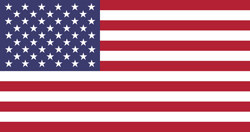
Intro
QuarkNet and Fermilab are the leading institutions for United States particle physics outreach.
Both institutions had an exciting 2020, transitioning quickly to virtual offerings and expanding particle physics education and outreach to new audiences.
In addition to offering remote workshops at centers across the US, QuarkNet offered a
Wednesday Webinar series for high school classrooms toward the end of the 2019–20 school year and a six-week Summer Session for teachers which introduced participants to the history and development of the Standard Model. For the 2020–21 academic year, we have inaugurated QuarkNet Educational Discussions, which are an opportunity for teachers to come together every two weeks to share ideas and learn from one another about teaching physics remotely. Many of Fermilab’s biggest programs went virtual in 2020 and attracted expanded audiences, including the annual STEM Career Expo, teacher training workshops, Saturday Morning Physics, Fermilab Arts and Lecture Series, classroom visits from Fermilab staff, Ask-a-Scientist, and even Mr. Freeze. Although nothing can ever replace the feeling of seeing big science up close, these virtual offerings are filling a gap until we can return to welcoming the public to in-person events.
Each summer the EPE Office offers a number of different workshops for K–12 teachers, each geared toward specific grade levels. On short notice, Fermilab sent kits across the country to teachers interested in participating, thus ensuring that the hands-on piece of the program was not lost. Now, Fermilab science will be taught in the virtual and in-person classrooms of 109 more teachers across the United States.
Saturday Morning Physics is a long-standing tradition at Fermilab. In September 2020 the program was relaunched as fully virtual for the present time. Featuring talks by Fermilab staff, virtual tours and plenty of time for questions, this program had its largest graduating class ever. For the public Fermilab was able to relaunch Ask-a-Scientist and our Summer Science Series as virtual programs. The events have been well-attended: 500 people have participated in the two series.
Details
Representative
Spencer Pasero
IPPOG
Members
Switzerland
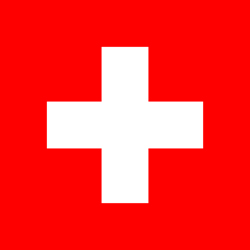
Intro
The Swiss Institute for Particle Physics (CHIPP) is an association according to Swiss law regrouping all the particle, astroparticle, and nuclear physicists holding a Master in physics and working for a Swiss institution, as well as the Swiss PhD nationals working at CERN.
Founded in 2003, CHIPP aims at strengthening in Switzerland three main pillars: Particle physics at the high-energy and intensity frontiers
astroparticle physics and neutrino physics.
This is achieved by promote public awareness on particle and astroparticle physics, helping towards a successful participation of Swiss groups in international projects and ensuring a proper Swiss representation in relevant national and international bodies.
Details
German
Das Schweizerische Institut für Teilchenphysik (CHIPP) ist die Dachorganisation der Schweizer Forschenden auf dem Gebiet der Teilchen-, Astroteilchen- und Kernphysik mit einem Master in Physik, die für eine Schweizer Institution arbeiten, sowie die Schweizer Doktoranden, die am CERN arbeiten, zusammengeschlossen sind.
CHIPP wurde 2003 gegründet und zielt darauf ab in der Schweiz die drei Forschungsgebiete Teilchenphysik, Astroteilchenphysik und Neutrinophysik zu stärken.
Dies wird erreicht durch die Förderung des öffentlichen Bewusstseins für die Teilchen- und Astroteilchenphysik, die Unterstützung der erfolgreichen Beteiligung von Schweizer Gruppen an internationalen Projekten und die Sicherstellung einer angemessenen Schweizer Vertretung in relevanten nationalen und internationalen Gremien.
French
L'Institut Suisse de Physique des Particules (CHIPP) réunit les chercheuses et chercheurs de la physique des particules, des astroparticules et de la physique nucléaire. Ces chercheurs doivent être titulaires d'un Master en physique et travailler pour une institution Suisse. Font partie de CHIPP aussi les doctorants suisses travaillant au CERN.
Fondé en 2003, le CHIPP vise à renforcer trois piliers principaux en Suisse: la physique des particules aux frontières des hautes énergies et des hautes intensités, la physique des astroparticules et la physique des neutrinos.
Cet objectif est atteint en sensibilisant le public à la physique des particules et des astroparticules, en contribuant à une participation de groupes suisses à des projets internationaux et en assurant une représentation suisse adéquate dans les organes nationaux et internationaux pertinents.
Italian
L'Istituto Svizzero di Fisica delle Particelle (CHIPP) riunisce i ricercatori di fisica delle particelle, dell'astrofisica e del nucleare che sono in possesso di un Master in fisica e che lavorano per un istituto Svizzero. Sono inclusi anche i cittadini svizzeri con dottorato che lavorano al CERN. Fondato nel 2003, CHIPP mira a rafforzare in Svizzera tre pilastri principali: fisica delle particelle alle frontiere delle alte energie e dell'intensità, astrofisica e fisica dei neutrini.
Questo obiettivo viene raggiunto promuovendo l’educazione del pubblico riguardo la fisica delle particelle e dell’astrofisica, favorendo una brillante partecipazione dei gruppi svizzeri in progetti internazionali e assicurando un'adeguata rappresentanza svizzera negli organismi nazionali e internazionali pertinenti.
JOINED: 2016
CURRENT STATUS: MEMBER
Representative
Katharina Müller
Katharina is a senior scientist at the University of Zurich working on the LHCb experiment at the Large Hadron Collider at CERN. She studied physics at the University of Zurich and received her PhD with a measurement of the proton structure function at the H1 experiment at the electron-proton collider HERA. Her current research interests are measurements with electroweak bosons or prompt photons as well as central exclusive production and diffraction with the LHCb experiment.

